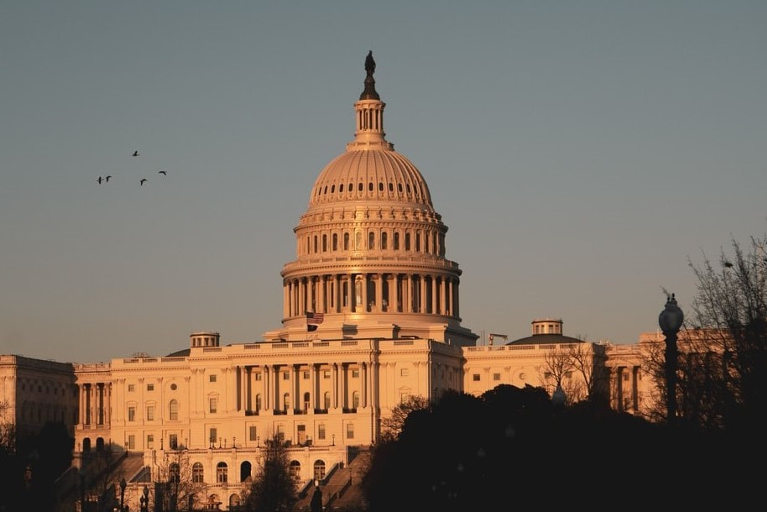In an act reminiscent of Luther and the church door, Joe Manchin (D-WV) wrote in the Washington Post that he would not vote to change the Senate filibuster rule nor was he keen on using the budget reconciliation process as the vehicle for enacting President Biden’s $2.4 trillion infrastructure plan—much of which is about decarbonizing the economy.
Manchin, like Biden, is an old school politician—where back-in-the-day loyalties were more to the nation than the party. In his marmish manner, Manchin believes refusing to eliminate the filibuster and voting against budget reconciliation will force Republicans and Democrats to work through their differences in a collegially combative sort of way—”just like it used to be.”
With the Senate evenly divided, the loss of one Democratic vote with no Republican replacement changes the balance of power.
Of all the sitting senators, Manchin should know how difficult it will be to get Republicans to support even half of Biden’s energy and environment plans. As one of its last acts, the 116th Congress passed, and Trump signed the American Energy Innovation Act (S. 2657). The leading sponsors of the bill were Senators Manchin and Murkowski (R-AK)In Murkowski’s own words, the Act stands as the first comprehensive modernization of our nation’s energy policies in 13 years. (emphasis added) The Innovation Act is long on research and short on the deployment of clean energy alternatives like solar and wind, which have been and will continue to be the most relied upon sources of utility-scale electric generation, according to the Energy Information Administration.
The Innovation Act is a mash-up of individual energy and environment bills from both sides of the congressional aisle. It fails to reflect the urgency of climate crisis or the readiness of solar, wind, and other emerging technologies to replace coal and other fossil fuels in the power, transportation, and buildings sector. It also has little to say about the injustice of decades of US environmental and energy policy on communities of color and low incomes.
The Audubon Society correctly casts the legislation this way:
This bill is an important building block, but it is just that—a building block. It provides critical investments to improve the technology we know we will need but does so without setting new goals or restrictions around emissions reductions, clean energy deployment, or clean-up of historic pollution.
Manchin is right in saying climate-related policies change every time there is a change in political control. The changes, however, are at the presidential rather than the congressional level. Why? Because Congress is so afflicted with partisanship, it has trouble enacting any legislation other than keeping the doors of the federal government open—even then its efforts are hardly foolproof. Congressional gridlock is the reason the Democrats are considering changing the filibuster rule.
In lieu of congressional action, national climate policy is dictated by executive orders that can be changed at will by the next president or the one after that.
I would be more inclined to agree with Manchin’s maneuver to block changes to the filibuster rule and the use of budget reconciliation if I thought members of Congress could compromise in good faith and be generally accepting of the overwhelming scientific evidence pointing to the need for radically reduced greenhouse gas emissions.
It took thirteen years to pass the American Energy Innovation Act. How long will it take to pass legislation that Republicans continue to call the Green New Deal and the leading edge of a commie takeover of the country?
Cross-aisle conflicts are not the only political story these days. Intra-party conflicts, particularly within the GOP, are going to keep the Republican congressional caucuses in disarray. Trump’s attacks on party stalwarts like Senate Minority Leader McConnell (R-KY) and Representative Cheney (R-WY) are only the beginning of the payback the former president has promised those he sees as having been disloyal to him. There will be pressure on the Republicans in Congress to show their true colors—of which there only appears to be two—black or white.
Budget reconciliation is all that the president and the Democrats in Congress have for achieving their science-based objectives, e.g., decarbonizing the electricity sector, before the 2022 midterms. History is against the Democrats. The first congressional elections after a new president is sworn in generally goes badly for his party.
I agree in principle with what Manchin is trying to do. It’s just the wrong time to do it.
Who knows when the nation will next have a president who understands the urgency of the problem and the scope of the solution—along with a majority in both the House and Senate?
Yes, I know there’s never going to be a right time. There will, however, be a better time.
Photo by Mayer Maged on Unsplash

This work is licensed under a Creative Commons Attribution 4.0 International License.






